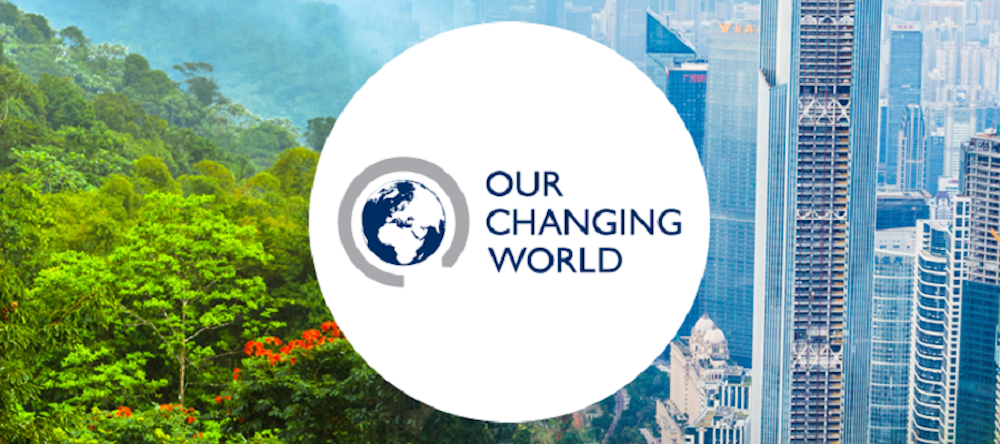
In this post, 2nd year students of Sustainable Development, Karen Fonstad and Mariana Scholzova, reflect on their involvement in the Our Changing World series. Our Changing World is now in its ninth year, and it is a credit-bearing course. The course is run by the Deanery of Biomedical Sciences but is open to all pre-honours students, and also invites the public to attend the talks alongside the students…
Our Changing World is a valuable course because it encourages students to interact with several academic disciplines, and brings together the perspectives of students from different schools, backgrounds, opinions and nationalities. It is common to stay within the comfort of your own area of study, and this course challenges students by introducing us to a wide variety of topics and viewpoints.
We both study Sustainable Development, and while that is already a relatively interdisciplinary degree, we have been challenged further by taking this course and engaging with topics ranging from neuroscience to immunology to wildlife conservation. It is easy to get comfortable in our academic bubble and therefore it was helpful to be exposed to topics outside of the social sciences.

Introducing students to a variety of academic fields fosters curiosity and critical thinking. For example, learning about the musical brain and neuroscience is something far from how we would approach the concept of music in social science. Instead of learning about the effects of music on cognitive functions of the brain, we would potentially focus on exploring symbolic value of music in different societies or cultures.
Facilitated Group Discussions
What differentiates the course from just attending the public lectures are the Facilitated Discussion Groups, where students come together to discuss the lecture topics. This is particularly beneficial because it brings together students’ opinions from schools all across the University. While it is interesting to learn about so many different topics, what stands out is the discussions about them on a personal level. For example, coming from a social science background where many courses are concerned with ethics and problematisation, it is interesting to discuss with students who are focused on more direct and empirical objectives. Many discussions in our group boil down to the questions of ethics compared to priorities, such as economic growth or technological development. We also have multiple nationalities represented in our group, which enriches the discussion due to our diversity in languages, culture and religions.
Most importantly, these discussions force us to examine and face our own biases. Courses can often tend to turn into echo chambers because they are catered towards people with similar interests and views. In Our Changing World, the topics presented and people involved are very diverse, which limits homogenisation while encouraging critical discussion. As Sustainable Development students, we tend to focus on environmental problems that can sometimes come at the expense of other considerations. This course made us increasingly aware of this inclination, and listening to other students perspectives encouraged us to challenge those biases.

In the end, the course offers a unique opportunity to bring different people, perspectives and opinions on a wide variety of different topics. It helps pop our academic bubbles, and promote interdisciplinarity in academia. This helps students face their biases, and hopefully make their opinions and discussions more considerate, holistic and informed.
Next week, we will welcome another blog post from students reflecting on their experiences of Our Changing World.

